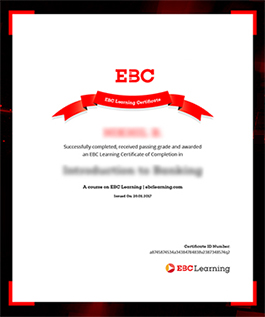Mastering Legal Writing: A Path to Academic and Professional Excellence
Enrollment in this course is by invitation only
Get key insights into what makes for a great paper while debating legal arguments from a range of topics



Skills you'll learn
Legal writing is one of the most essential skills for a lawyer. Effective legal writing enables the clear communication of complex legal concepts, persuasive argumentation, and the precise drafting of legal documents—all indispensable tasks in legal practice. Proficiency in legal writing not only enhances a law student's academic performance but also significantly boosts employability, as employers seek individuals who can articulate legal arguments succinctly and accurately. Mastering this skill is a strategic investment for any aspiring lawyer.
This course focuses on one of the most rewarding forms of legal writing: writing legal papers for publication. Getting published not only enhances your profile but also opens doors to exciting career opportunities. To help you achieve this, we will delve into what publishers look for in legal papers and how to craft work that meets these standards.
A common reason why legal papers remain unpublished is the lack of originality or focus. Some papers may fail to present a novel idea, while others struggle with inadequate arguments or unclear messaging. To overcome this, the course begins by guiding students through the process of generating publishable ideas. We will explore and debate legal concepts, from a range of legal articles, to help you arrive at focused, compelling arguments in the area of your choice. Whether you are passionate about constitutional law, corporate law, environmental law, or contract law, this skill is universally applicable.
Once you've developed a strong idea, we will turn our attention to structuring and organising your paper. Topics include building logical arguments, tailoring content to your audience, and adhering to the stylistic conventions of legal scholarship. These skills are crucial for producing a paper that resonates with both academic and professional audiences.
This course promises an exciting and intellectually stimulating journey. You will learn not only how to identify and develop unique legal ideas but also how to turn them into well-structured, publishable papers. Whether you’re a student, a junior associate, or a professional seeking to refine your writing, this course is designed to help you succeed.
Join us on this transformative journey to master the art of legal writing and make your mark in the legal world!
Enrollment in this course is by invitation only

You see, fear is a fighter's best friend. You know, but it ain't nothing to be ashamed of. See, fear keeps you sharp, it keeps you awake, you know, it makes you want to survive.
— Rocky Balboa from the movie RockyWho is this course for?
This course could be beneficial for a wide range of individuals, including:
- Law Students: Especially those pursuing their LLB or LLM who want to improve their academic performance and enhance their employability through published papers.
- Junior Associates: Recently graduated lawyers seeking to build credibility and stand out in a competitive legal job market.
- Academics and Researchers: Scholars in law or related fields looking to refine their legal writing and publish high-quality papers.
- Corporate Professionals: Legal advisors, corporate counsel, or professionals in industries like banking, finance, or compliance, who may need to present well-articulated arguments or insights in a legal context.
- Judicial Aspirants: Individuals preparing for judiciary exams who want to sharpen their ability to articulate and structure legal arguments.
- Professionals from Other Backgrounds: Engineers, MBAs, CAs, and others interested in legal research, writing, or transitioning into the legal field.
- Legal Practitioners: Lawyers, paralegals, and consultants who want to expand their skill set and publish papers to establish themselves as thought leaders in their field.
This course is particularly valuable for anyone seeking to deepen their understanding of legal writing, improve their ability to convey ideas clearly, and build a reputation in the legal community.
What sets this course apart?
What sets this programme apart is its unique focus on developing the foundational skill of generating original and publishable ideas, an area often overlooked in traditional legal writing courses. Here’s what makes it stand out:
- Focus on Originality: Most courses teach formatting and argumentation, but this programme dives deep into how to identify, evaluate, and refine unique legal ideas that publishers are looking for.
- Debate-Driven Learning: By engaging in debates on fundamental legal concepts, particularly rights, participants learn to think critically and develop arguments that are both compelling and well-reasoned. This interactive approach not only hones writing skills but also sharpens analytical thinking.
- Practical Insights into Publishing: The course offers a behind-the-scenes look at what publishers seek in legal papers, helping participants align their work with industry standards and expectations.
- Universal Application: Whether you’re interested in corporate law, constitutional law, environmental law, or any other field, the skills taught in this programme are transferable across legal disciplines.
- Comprehensive Structure: It goes beyond just drafting techniques, covering everything from idea generation to structuring arguments and tailoring papers for specific audiences. This ensures participants leave with a holistic understanding of the writing process.
- Interactive and Personalised Approach: The programme emphasises interactive learning through discussions, brainstorming sessions, and real-time feedback, ensuring each participant receives tailored guidance to improve their writing.
- Career-Enhancing Outcomes: By focusing on publishable work, this course helps participants build their profiles, enhance their credibility, and improve employability in a highly competitive legal field.
- Opportunity to get published with the top law publisher in the country: Learners who arrive at a publishable paper by the end of the course will have the option to get their papers published in an appropriate EBC journal of their choice, including SCC, the Practical Lawyer, SCC Online Blog, and EBC Learning Blog.
This is not just a course on how to write—it’s a transformative experience that equips participants with the critical thinking, research, and writing skills necessary to make a real impact in their academic or professional journey.
What will you achieve?
By the end of this course, students will achieve the following:
- Develop Publishable Ideas: Gain the ability to identify unique legal topics worth writing about, ensuring their work is original, relevant, and aligned with publishing standards.
- Master Argumentation and Clarity: Learn to structure clear, logical, and persuasive arguments, supported by sound reasoning and research.
- Understand Publishing Requirements: Acquire insights into what publishers expect in legal papers, including formatting, tone, and content focus, making their submissions more likely to be accepted.
- Refine Critical Thinking: Sharpen their ability to critically evaluate legal concepts and ideas through debates and discussions, a skill that extends beyond writing to all areas of legal practice.
- Enhance Academic and Professional Profiles: Build credibility and stand out in the legal field by producing high-quality, publishable work.
- Gain Versatile Writing Skills: Learn techniques for organising thoughts, structuring papers, and tailoring content for specific audiences, applicable across various fields of law such as corporate, constitutional, environmental, or contract law.
- Boost Employability: Equip themselves with a skillset that is highly valued by employers, making them more competitive in the job market.
- Produce a Finished Paper: By the end of the course, participants will have a fully developed legal paper, ready for submission to journals or other publishing platforms.
Enrollment in this course is by invitation only
Instructors

Abhinandan Malik
Abhinandan Malik is Director Publications at EBC, India's top law publisher with a demonstrated history of working in publishing, the information technology and services industry. He is a graduate of NALSAR University of Law with an LLM from the University of Toronto. He is skilled in E-Learning, Legal Assistance, Legal Research, and Legal Writing.
He has 10 + years of editorial experience, conceptualising, guiding and editing publications at EBC. He has also authored the course on Contract Law at EBC Learning and is fond of guiding students, especially in the area of legal writing. At NALSAR he was the founder editor of an inter-law school magazine and law review called The Edict. It comprised students from the top national law schools across India as editors.
At the University of Toronto, he specialised in private law. His thesis was on the Horizontal Application of Fundamental Rights. He was also invited to be part of the Academic Council for the Refresher Program in Law titled “Evolutions in Legal Pedagogy” offered by NALSAR University, under the Ministry of Human Resource Development.

Shashikant Yadav
Shashikant Yadav is a writer, energy law researcher, and academic with more than seven years of experience in legal research and writing. He has been associated with the University of Dundee, Scotland, as an academic researcher and is currently affiliated with Central European University, Vienna.
Recently, he reviewed Columbia Law School’s Sabin Centre for Climate Change Law Report’s titled “Legal Levers for Cleaner Air in Kolkata”. His work, mostly on natural resources law, is published with: The Ecologist (UK); The Wire; The Hindu; The Swaddle; The Sunday Statesman; The Hindu Businessline, among others.
His academic work is published with leading (Scopus indexed) journals, including Journal of Energy and Natural Resources Law; Economic and Political Weekly, Global Energy Law and Sustainability, Edinburgh University Press.

There are two things wrong with almost all legal writing. One is its style. The other is its content. That, I think, about covers the ground.
— Fred RodellCertificate
Complete this course and exercises to earn a certificate. Share it with your friends, colleagues, and employers.

Limit Reached or Trial Expired
You have reached the limit of 2 audit enrollments or your trial period has expired.
